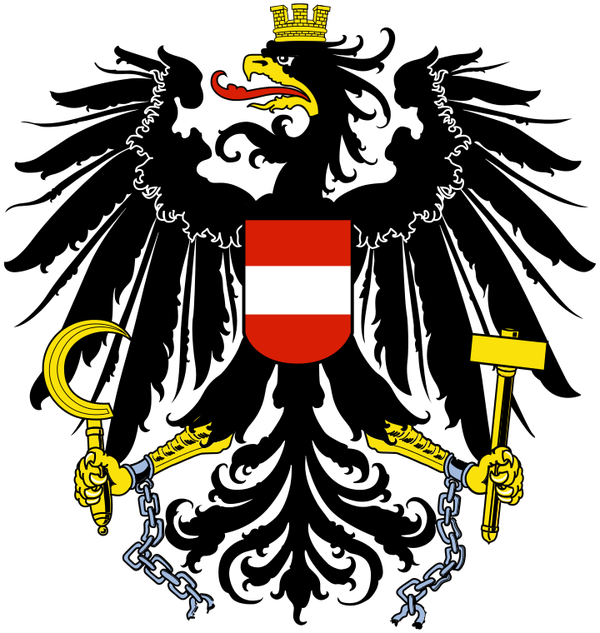
Driving in Spain: everything you need to know
Early summer is a perfect time to decide which country you'll be spending your holiday in. If your choice is Spain, and especially a road trip along fascinating historic routes, then we wish you a wonderful journey. Of course, to ensure a comfortable and carefree journey, we've prepared an article for you that tells you what to expect on the roads and whether your driving licence is suitable for driving.
What documents do I need to drive in Spain?
A road trip by car is a great idea to get to know Spain. To arrange such a trip, first make sure your licence is valid for driving in this country or you need to obtain an international one.
If you are a European Union or European Economic Area citizen, your driving licence entitles you to drive in Spain on an equal terms with the locals.
In all other cases, an international driving licence is necessary. This is something you should take care of before you leave in order to avoid any inconvenience. International permit allows you to drive a car in Spain. Therefore, it is worth presenting your international driving licence when requested in addition to your passport and national driving licence.
If you enter the country in your own car, you must carry international car insurance. Contact the Spanish embassy or consulate in your country to enquire about the requirements.
Important: The minimum driving age in Spain is 18 years old.
How to rent a car in Spain?
List of documents required to rent a car in Spain:
National driving license
Passport
To rent a car in Spain you must be at least 21 years old. Rental companies may also have an increased rate for young drivers (under 25); and a driving experience requirement of 1 year or more. Payment is only accepted by embossed credit card.
All drivers planning to drive the rental car must be listed on the service contract.
By the way, renting a car with a manual gearbox will cost you less than an automatic, as they are more common in Spain.
Essential traffic regulations in Spain
The main list of traffic rules is familiar to everyone: speed limits, road signs, seat belt, using the phone while driving, etc.
The maximum permitted speed is indicated on signs alongside all roads:
within the city - 30 km/h
outside the city - 90 km/h
on motorways and dual carriageways - 120 km/h.
Overtaking is permitted on the left side of the vehicle.
Using the phone while driving is completely prohibited, with the exception that you can answer the call hands-free.
Paid parking in the blue zone (urban surface parking) in the city can be paid for from parking machines and allows you to leave your car only for a certain time, after which you have to pay again. There are also other coloured zones with their own rules. Underground parking areas usually belong to shopping malls, etc., which have their own fee and parking time policies.
Just like adults, who must wear their seatbelts while driving, children must also travel safely. Child seats and special restraints are compulsory for children up to 135 cm tall who must be seated in the back seat. All rules also apply when travelling by taxi, so it's worth paying attention to the availability of seats and child restraints in the car. When travelling on a moped or motorbike it is mandatory to wear a helmet.
The maximum permitted concentration of alcohol is 0.25 mg/l per litre of exhaled air.
Toll roads in Spain
Travelling by car in Spain is mainly on free roads. There are also alternative routes to avoid the toll roads.
However, if you choose the route which goes through a toll road, here's what you need to know: there are different fares for different categories of vehicles, the price depends on the length and congestion of the road plus there are also some toll tunnels.
Since most toll roads are gated (with posts on each side), payment can be made in cash or by card at the end of the toll section. It is also possible to install a Via-T tracking device, with which the movement will be automatically reported and charged.
Traffic violation penalties in Spain
To avoid getting a fine on the roads in Spain, at least be sure to follow all the rules listed above. Always carry your passport, national driving licence, international car insurance if you drive your own car and international driving licence. Otherwise, you may not only lose your driving licence and national driving licence but also be sentenced to imprisonment for 3 to 6 months..
In the case of a fine, there are the following payment options
By credit or debit card to an officer, when pulled over by officers of the Guardia Civil.
Payment options when you receive a penalty notice via mail:
By credit / debit card on the website of the Dirección General de Tráfico ("General Directorate of Traffic in Spain").
By credit / debit card by calling the 060 phone number (from Spain): The service is only available in Spanish. For service in another language, call +34 902887060.
By card and in cash at Correos post offices. An additional fee of €2.25 + 1.5% of the fine will be added to the fine.
By any method at branches of La Caixa Bank (Caixabank).
Only by card at the nearest traffic police station (Jefatura u Oficina de Tráfico).
Paying the fine within 20 days of the issuance of the ticket will reduce the amount by half.
If you have already left Spain, you can also pay the fine by bank transfer. If you have any questions, the DGT hotline is available on +34 987 010 559.
It is advisable to find out more about the rules in the Autonomous Community of Catalonia, as they may differ. Fines received in Catalonia can be paid at https://web.gencat.cat/ca/inici

